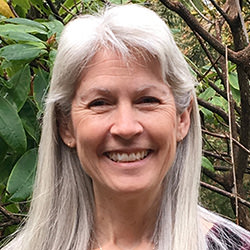

Search Results: nonviolence
-
Veteran Trainer Sylvia Haskvitz reviews the key distinctions/differentiations in NVC.
-
- Explore the spiritual foundations of NVC
- Witness transformational and healing processes led by Robert Gonzales
- Learn from the questions proposed by participants
- Gain processes that support a consciousness of the “Beauty of Needs”
-
Experience the roots of NVC with this remastered introduction to embodied spiritual practice.
-
Learn how Nonviolent Communication (NVC) can improve the quality of your personal and professional relationships, one interaction at a time.
-
Here's a brief anecdote showing how one woman was able transform a situation, where a man was about to assault or rape her. She responded in a creative way that lead them both to see each others' humanity -- navigating them both to safety. As part of her ingenuity he ended up spending the night in her house, in another room.
-
- Adapted from Marshall’s bestselling book and taught in his own words
- Learn how to utilize empathy to safely confront powerful emotions
- Discover how to overcome the blocks to compassion
- Open to your natural desire to enrich the lives of those around you!
-
- Understand the dynamics of power struggles
- Explore practical strategies for navigating power imbalances
- Discover ways you can share power in various relationships
- Explore how NVC supports a move away from domination, into shared power
-
-
-
-
-
Trainer tip: People often presume why something happened before checking with the other person. Instead, if we were to name the facts of what happened through observation without adding in our own judgments or reasons why we think it happened, we can more easily open the possibility for deeper connection with the other person. Read on for more on making observations.
-
- Learn the essentials of NVC from its founder, Dr. Marshall Rosenberg
- Discover how to connect with others with empathy, integrity, and peace
- Understand the origins of NVC and how to apply it within yourself and in your life
- Experience how empathy supports healing in your most intimate relationships— and in the world at large!
-
We're more likely to sacrifice trust, connection, and relationship quality when (1.) We use NVC to focus on being seen, understood, heard, or meeting our own needs in a way that eclipses our view and understanding of others needs; (2.) We don't clearly examine our intentions; and (3.) We use the NVC form so rigidly that it becomes difficult for others to connect with us authentically.
-
Amidst racial violence, there are things that NVC can offer. And there are places where NVC culture needs to be more vigilant. Here are examples of where, amidst incredible loss and pain, "allies" and communities commonly (and often unknowingly) create false equivalences, minimization and re-injure those who've been historically marginalized -- even when they offer empathy, or aim to stay "safe". Read on to cultivate greater understanding and ways to respond differently.
-
Develop resilience and stay present amidst challenge by tapping into the living energy of needs.
-
-
-
Experience NVC consciousness through exercises as if attending a live workshop with Mary.
-
Jeff Brown shows how to bring NVC to your workplace by starting with inner awareness.
Quick Links

Stay in Touch!
We value your privacy, won't share your email address and you can easily unsubscribe any time.















